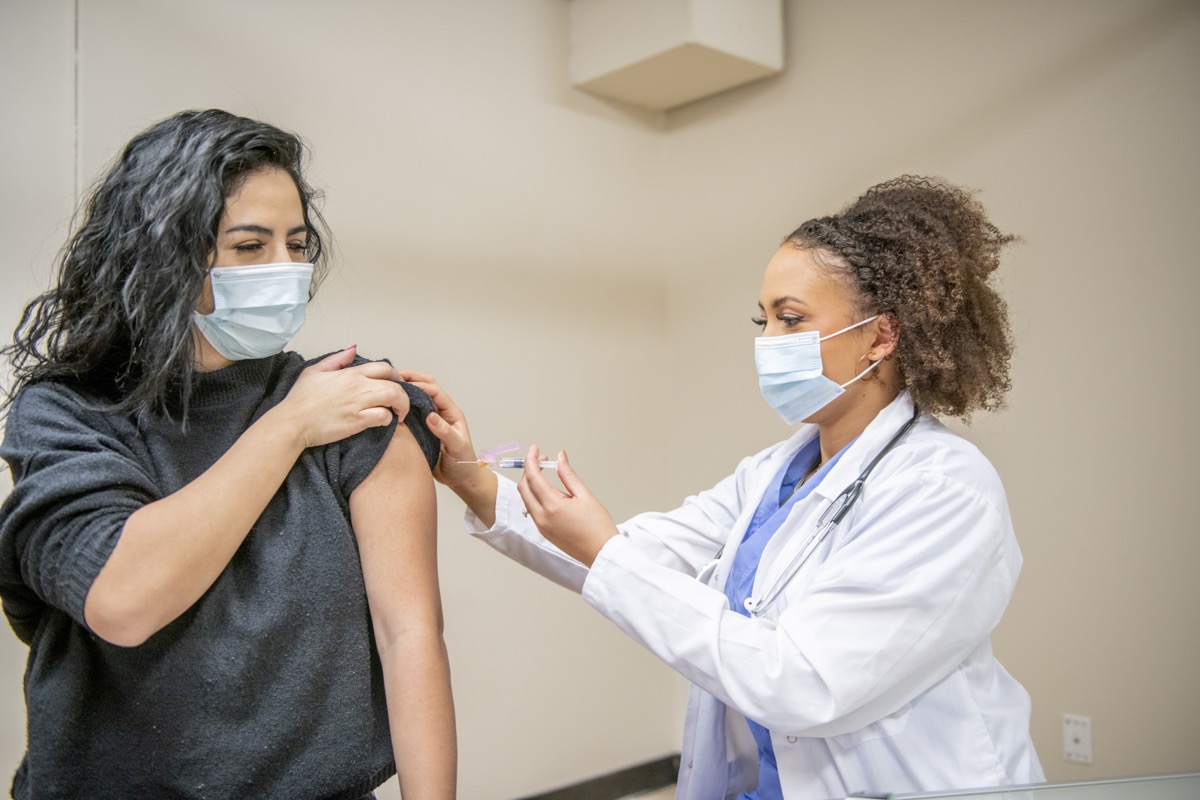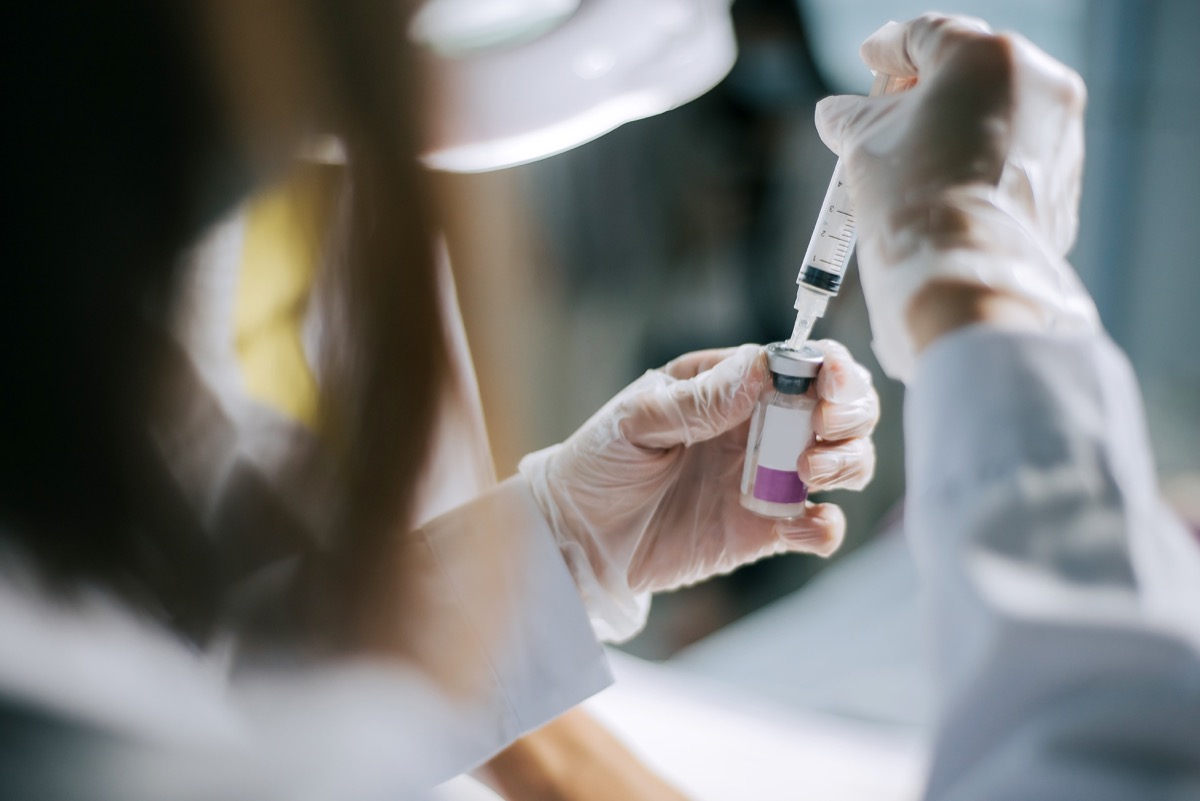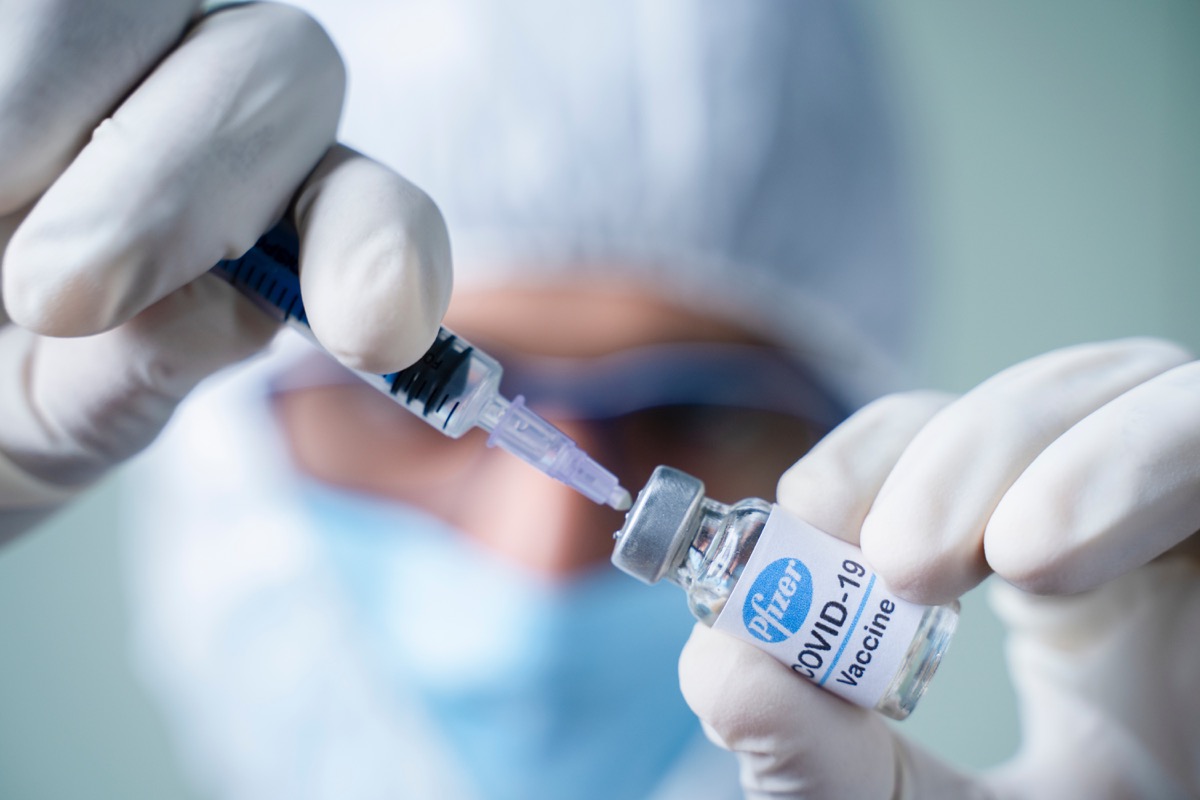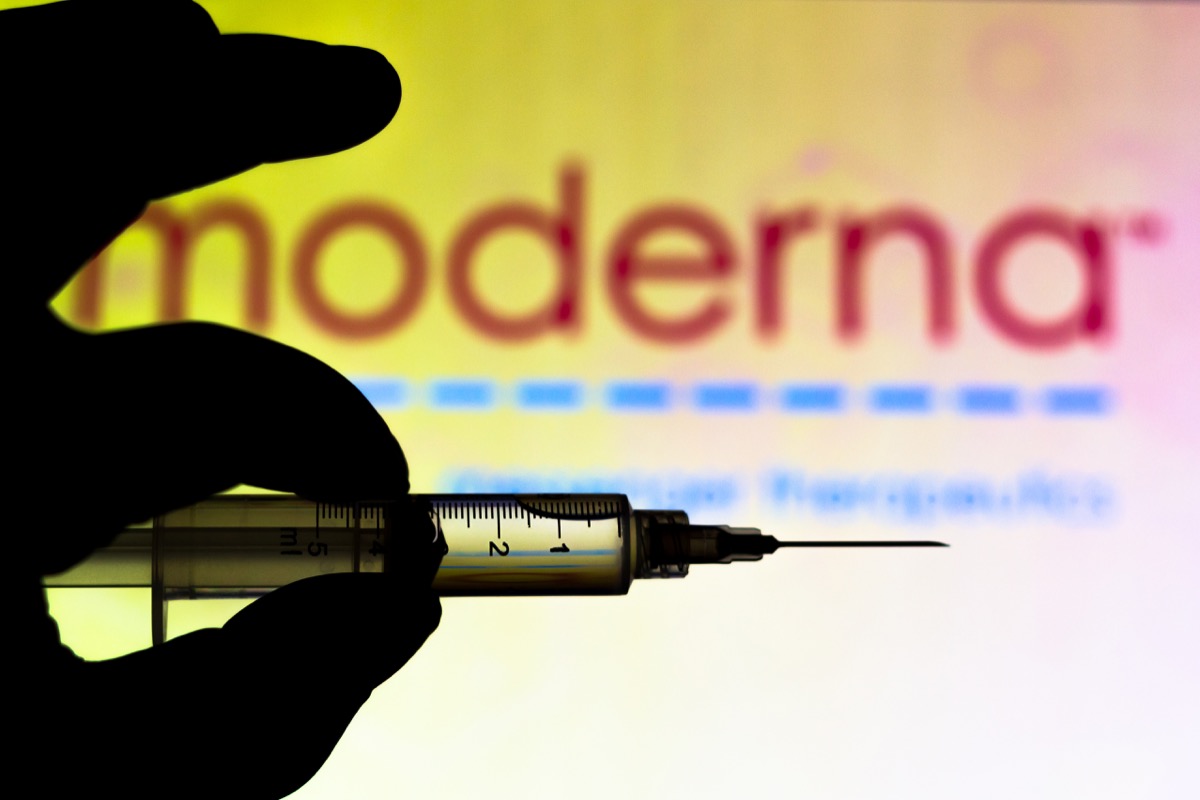During a virtual event hosted by CVS Health on April 15, Bourla was asked how frequently people will need to get additional doses of the Pfizer vaccine. While a booster could come sooner, he said you’ll likely need to be vaccinated at least every year. “There will be likely a need for a third dose, somewhere between six and 12 months,” Bourla explained. “And then from there, there will be an annual revaccination. But all of that needs to be confirmed.” When asked why the COVID vaccine requires multiple doses while others require just one, Bourla explained that there are certain vaccines, such as the polio and pneumococcal vaccines where one dose is enough to keep you protected for your whole life. On the other hand, there are vaccines, like flu shots, that you need yearly because of how the virus evolves over time. Bourla said that since the COVID virus looks more like influenza than the others, it’s likely the vaccine will need a boost annually. To see if you’re more susceptible to getting COVID even if you’re vaccinated, check out You’re More Likely to Get COVID After Vaccination If You’re Over This Age. Bourla noted that variants will play a key role in determining how frequently people will need to get additional COVID shots, pointing out that vaccination is essential in preventing more variants from popping up. According to Bourla, the more people get vaccinated, the less room the virus will have to replicate and yield new variants. “It is extremely important to suppress the pool of people that can be susceptible to the virus because they are vaccinated with high efficacy vaccines,” said Bourla. “The pool of people is what defines how many replications the virus will do and defines if or not and how many variants will appear.” To see what the Moderna CEO predicts will happen with the vaccine, check out Moderna CEO Says There Could Be a Big Difference in Your Next Vaccine. On April 1, Pfizer shared a study that found its vaccine to be highly effective at protecting people against symptomatic COVID cases for at least six months after their second dose. The researchers analyzed trial data from over 46,000 participants, 77 of whom got COVID after receiving the vaccine, while 850 participants who received a placebo got COVID. This equates to a 91.3 percent efficacy rate against symptomatic COVID for at least six months after you’re fully vaccinated. “It is an important step to further confirm the strong efficacy and good safety data we have seen so far, especially in a longer-term follow-up,” Ugur Sahin, MD, CEO and co-founder of BioNTech (which co-created the Pfizer vaccine), said in a statement. For more COVID vaccine news delivered straight to your inbox, sign up for our daily newsletter. On April 15, Moderna CEO Stéphane Bancel told Yahoo Finance that “a booster is going to be needed” with the COVID vaccine. Much like Pfizer, Moderna also found that its vaccine maintained high efficacy six months after the second dose. However, Bancel said a booster could help fill in the gaps for more vulnerable populations. “If you look at the efficacy [after six months], it’s still 90 percent plus, which is, of course, wonderful. But you have a mixed bag, I would say, between people that are young and healthy and maybe 100 percent efficacy and people that are older with one or several co-morbidity factors,” he explained.ae0fcc31ae342fd3a1346ebb1f342fcb Bancel also noted that the variants play a role in when additional COVID shots will be needed. “We do worry about the variants. As you know, the virus is evolving away from the original strain and so from the original vaccines,” he said. Currently, the U.K. variant, B.1.1.7., is becoming increasingly prevalent but the existing vaccines do protect against it better than other variants. “We are worried especially about the one first identified in South Africa or in Brazil,” Bancel said. “We believe especially people at high risk should get a boost in the fall, and we want to make sure we have the best possible boost,” he explained. Bancel added that Moderna is currently doing clinical testing on three different strategies. To see what you should do after your shot, check out Make Sure to Do This the Day After Your COVID Vaccine, Experts Say.



